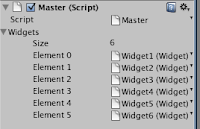I'm a little saddened by this. I think it's a well designed and useful API and I've found it quite enjoyable to use but it's clear that slowly C and C++ fall out of favour (yes, yes not without good reasons - I guess I'm just getting old and nostalgic).
In case of the possibility there are some others out there still plugging away with Carbon or at least having a bit of a play, this post is for you!
I had a particularly annoying problem the other night, and it stumped me for longer tham I'd like to admit. It was only some old crusty websites and a mailing list archive that gave me any clues as to what the problem might be. So for the sake of "paying it forward" I just thought I'd mention this problem I had and hope it might help somebody just like me. It was a very unintuitive problem. Most likely because I don't completely understand the way Carbon works with it's disk based resources.
Eets, the title I'm working on, is basically a C++ and Carbon application. I am using CMake to generate the Xcode files. When the products are build, the .app directory and files are cobbled together mostly by hand (or by a script I wrote). I'd used interface builder to setup the basic window and toolbar settings. Somewhere along the line I'd obviously changed something outside of interface builder in the interface nib files.
In my C++ code I've setup the basic Event loops, Events and Event Handlers. My problem began after adding some features and a compile. The main window would open but the whole application would just freeze. The menu wouldn't appear and the application window wouldn't respond to mouse clicks or drags. The window would just sit there and lose focus to any other window in it's way.
I noticed this specifically happened once the code had started up and entered the RunApplicationEventLoop.
I kept thinking I'd setup the Event loop incorrectly or there was a bug in my code. I spent ages trying to work out what I could have done wrong. When I paused the application in the debugger the callstack looked like the one below.
#0 0x900074c8 in mach_msg_trap ()
#1 0x90007018 in mach_msg ()
#2 0x90191708 in __CFRunLoopRun ()
#3 0x90195e94 in CFRunLoopRunSpecific ()
#4 0x927d5f88 in GetWindowList ()
#5 0x927dc6f0 in GetMainEventQueue ()
#6 0x927fe1c8 in GetApplicationTextEncoding ()
#7 0x927fb698 in RunApplicationEventLoop ()
#8 0x0000a264 in main (argc=2141449080, argv=0x38810040)
I eventually worked out what the problem was. It turns out that
RunApplicationEventLoop was freezing, and it was basically not handling events properly. This occurs when the CFBundleExecutable value in Info.plist file of the application bundle doesn't match the application name (set by "PRODUCT_NAME" in the build preferences of Xcode). Deep down within Carbon this apparently stops events from working.
Annoyingly Eets, at the time, wasn't even being built as a bundle so I had to change that. It was time consuming and fiddly to do so - as CMake doesn't really have great support for Xcode application bundles, frameworks etc. It's getting there ... slowly.
After I changed CMake to create an application bundle and setup the Info.plist and .app directory structure, Eets is again working. I didn't change any of the C++ code to fix it. I just setup the .app as apparently required. Well I did learn something, even thought it wasted some time.
I hope this is of use to some Carbon API users out there.







